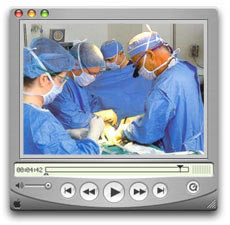Chapel Hill Tubal Reversal Center Patient Reviews
Chapel Hill Tubal Reversal Center patients often post testimonials and satisfaction messages on the Tubal Reversal website, here are some of the most recent ones:
Reversing Tubes: Better Than IVF – Testimonial #1433 December 17th, 2012
“Best choice and a lifetime of thankfulness for Chapel Hill Tubal Reversal
Center and giving us this chance to truly be happy and complete” Crystal
S., Cleveland, Ohio
Read the rest of this message and comment on it. »
Our First Berger Baby – Testimonial #1432 December 17th, 2012
“We are extremely excited to announce the birth of our first Berger baby!
Welcome Declan Douglas! Only 14 1/2 months after having TR!” Amy and
Doug L., Springfield, Illinois.
Read the rest of this message and comment on it. »
Reversing A Burned Tubal Ligation – Testimonial #1431 December 16th, 2012
“Thank you so much Dr. Monteith and staff. Our dreams came true with the birth
of our daughter Ella. We will never forget the journey and experiences
at CHTRC.” Spencer and Nicole S., Claremore, Oklahoma.
Read the rest of this message and comment on it. »
3 Babies After Tubes Untied – Testimonial #1430 December 16th, 2012
“I want to thank Dr. Berger again. I have had three babies since my TR and
I’m so grateful to you and your staff at Chapel Hill Tubal Reversal
Center for making my journey to get my tubes untied a joyful time in my
life.” Lacrecia A., Tolleson, Arizona.
Read the rest of this message and comment on it. »
More Proof Burned Tubes Can Be Reversed – Review #1391 December 19th, 2012
“I did an HPT this morning and it is positive, this is our first month actively TTC.” Geri K., Broomfield, Colorado.
Read the rest of this message and comment on it. »
A Miracle at 40 – Review #1390 December 19th, 2012
“I am 40 years old (will be 41 in a few weeks). To us, this is a miracle
from God and an answer to prayers. Thank you Dr. Berger” Rebecca M.,
Cookeville, Tennessee.
Read the rest of this message and comment on it. »
Pregnant With One Fallopian Tube – Review #1389 December 18th, 2012
“I’m So Very Happy and Blessed to be looking at a POSITIVE pregnancy test.
Words can not possible begin to express the Appreciation and Thanks that
I have for Dr. Berger and the Wonderful staff that he has at Chapel
Hill Tubal Reversal Center.” LaQuenda W., Tyler, Texas.
Read the rest of this message and comment on it. »
Happy To Be Pregnant After Tubal Reversal – Review #1388 December 18th, 2012
“I am so happy. After two years of waiting I’m finally pregnant.” Maritza N., Philadelphia, Pennsylvania.
Read the rest of this message and comment on it. »
+Dr. Gary S. Berger

